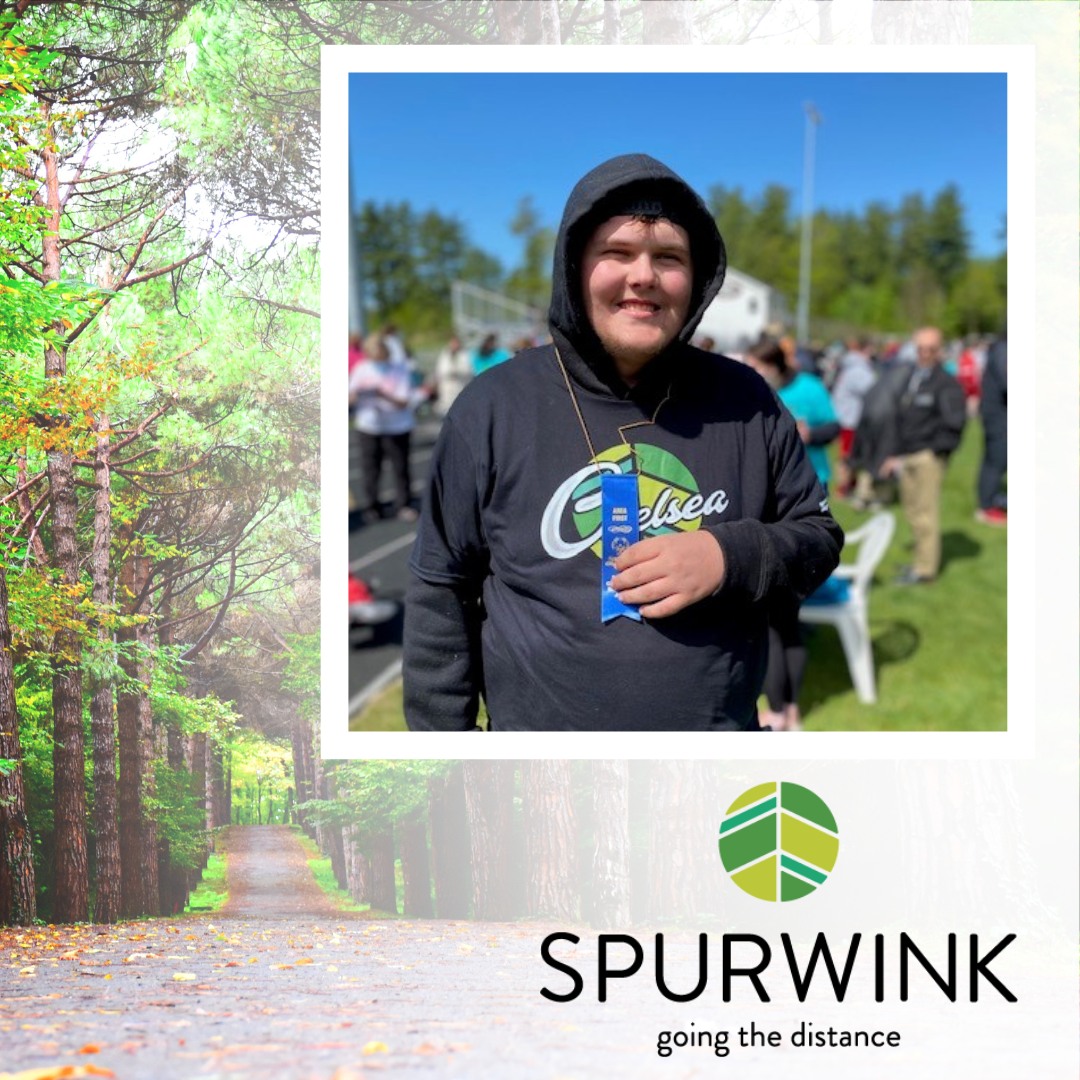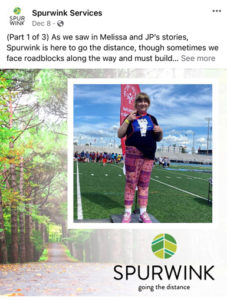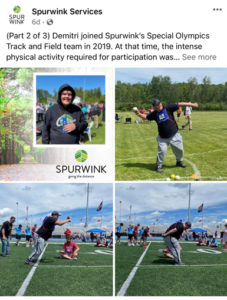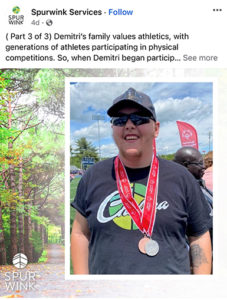
This is Demitri’s story.
Demitri joined Spurwink’s Special Olympics Track and Field team in 2019. At that time, the intense physical activity required for participation was a challenge for Demitri and a barrier to his overall well-being. However, encouraged by individualized support from staff, coaches, and fellow athletes, Demitri persisted through new and challenging workouts involving jogging and sprinting, running laps, lifting weighted balls, squats, pushups, planks, and more. Soon after, Demitri participated in his first Regional Competition where he got his first taste of athletic success. The feelings of pride and accomplishment that came with competing successfully launched Demitri onto a new path forward.
Fast forward to 2022; At the Regional and State Games for Track and Field, Demitri put every ounce of energy and enthusiasm into competing. He participated in the 50-meter dash, long jump, and softball throw and took home two medals! Demitri has also started competing for Spurwink’s first-ever Special Olympics bowling team. Being an athlete has improved Demitri’s confidence, self-esteem, and wellness, and strengthened his relationships.
Demitri’s family values athletics, with generations of athletes participating in physical competitions. So, when Demitri began participating in Spurwink’s Special Olympics program, they didn’t hesitate to support him. His whole family came to his events to cheer him on. They loved to see Demitri getting out, competing, and succeeding. Their pride for him swelled. Indeed, as Kira Deveau, Spurwink Occupational Therapy Coordinator, shared, “Some of the most special moments that have come out of Spurwink’s Special Olympics program are when we get to see bonds grow with families.”
Demitri will graduate from Spurwink’s Chelsea Day Treatment school at the end of this year and will take the experiences gained through Special Olympics forward with him as he continues his journey.
More about Special Olympics
The idea for Special Olympics arose in 1960 when multiple families came to Eunice Kennedy Shriver with a roadblock: their children with intellectual disabilities were not being accepted into mainstream summer camps. Shriver’s solution was to build something new—a summer day camp for young people with intellectual disabilities (ID) in her own backyard. “The goal was to learn what these children could do in sports and other activities—and not dwell on what they could not do.” (Special Olympics, @specialolympics). Over time, Camp Shriver evolved internationally into Special Olympics as we know it today.
Spurwink’s Special Olympics program provides opportunities for people to overcome barriers on their path to better health. As we share more in future posts about our student athletes, we’ll find that some of those barriers can be self-esteem, wellness, building relationships, or community awareness. Through personal training, team commitment, and competition, students improve their well-being, as well as relationships with their families, teammates, coaches, and the greater community.
By building these relationships, we’re working to ensure there is room for everyone on the path to better health. We invite you to join us in forging that path: Make a donation today at spurwink.org/donate.
This story was originally told in a four-part series through social media. If you would like to view the individual posts, containing additional commentary and any public commentary, please visit the links below.



